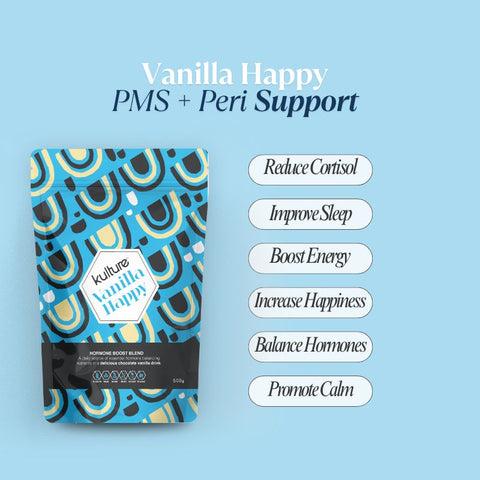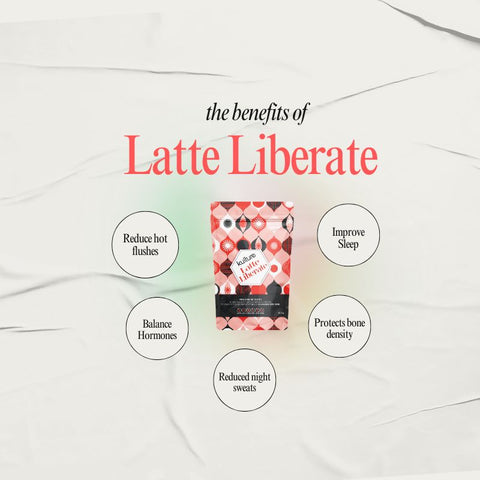Estrogen dominance is a term that is often used to describe a hormonal imbalance in the body where there is an excess of estrogen relative to progesterone. Estrogen and progesterone are two important hormones in the female reproductive system, and they work together to maintain a balance.
Estrogen dominance can occur throughout your life stage and for various reasons, including:
- Hormonal fluctuations: Imbalances can occur naturally during the menstrual cycle, perimenopause, and menopause.
- Environmental factors: Exposure to endocrine-disrupting chemicals (found in certain plastics, pesticides, and household products) can affect hormone levels.
- Diet: Certain foods can influence estrogen levels. A diet high in processed foods and low in fibre may contribute to estrogen dominance.
- Stress: Chronic stress can impact hormone levels and disrupt the balance between estrogen and progesterone.
- Weight: Adipose tissue (fat cells) can produce and store estrogen, so excess body fat, especially around the abdomen, can contribute to estrogen dominance.
Symptoms of estrogen dominance may include:
- Irregular menstrual periods
- Breast tenderness
- Mood swings
- Weight gain
- Fibrocystic breasts
- Headaches
- Insomnia
- Fatigue
- Hair loss
Perimenopause & Estrogen Dominance
Estrogen dominance during perimenopause is a common concern for many women. Perimenopause is the transitional phase leading to menopause, during which a woman's body undergoes various hormonal changes. Estrogen and progesterone levels can fluctuate, and in some cases, estrogen dominance may occur.

During perimenopause:
- Fluctuating Hormones: Estrogen levels can vary, and in some instances, they may be higher compared to progesterone, leading to estrogen dominance.
- Ovulatory Changes: As women approach menopause, there can be irregularities in ovulation, affecting the balance between estrogen and progesterone.
- Decreased Progesterone Production: The ovaries may produce less progesterone during perimenopause, further contributing to an imbalance.
Estrogen dominance during perimenopause can result in symptoms such as:
- Irregular menstrual cycles
- Heavy or prolonged periods
- Breast tenderness
- Mood swings or irritability
- Insomnia
- Hot flashes
- Changes in libido
- Weight gain
Managing Estrogen Dominance and Increasin Progesterone
Managing estrogen dominance during perimenopause often involves a combination of lifestyle changes and, in some cases, medical interventions. Here are some strategies:
- Healthy Lifestyle: Adopting a healthy lifestyle can help balance hormones. This includes maintaining a balanced diet, regular exercise, and managing stress.
- Dietary Changes: Consuming a diet rich in whole foods, fibre, and phytoestrogens can be beneficial. Phytoestrogens, found in certain plant foods, may help modulate estrogen levels. Latte Liberate can also help as its high in Soy which is rich in phytoestrogens.
- Supplements: Some women find relief with supplements such as omega-3 fatty acids, vitamin E, vitamin C and certain herbs such as Chasteberry and Progesterone (Wild Yam) creams. Did you know that Vanilla Happy from Kulture can also balance progesterone as it's rich in magnesium and zinc.
- Hormone Replacement Therapy (HRT): In cases where symptoms are severe, healthcare providers may recommend hormone replacement therapy to address hormonal imbalances. HRT involves providing estrogen or a combination of estrogen and progesterone.
Estrogen Dominance and Weight Gain
Estrogen is a hormone that plays a complex role in regulating various physiological processes in the body, including metabolism and fat storage. However, the relationship between estrogen and fat storage is nuanced, and it's important to consider several factors. Here are some points to keep in mind:
- Estrogen and Fat Distribution: Estrogen tends to influence fat distribution, and higher levels of estrogen are associated with a more gynoid or "pear-shaped" fat distribution. This means that fat is more likely to be stored in the hips, thighs, and buttocks. Conversely, lower estrogen levels (such as during menopause) may contribute to a more android or "apple-shaped" fat distribution, with an increased tendency to store fat in the abdominal area.
- Estrogen and Metabolism: Estrogen has been shown to have metabolic effects that can influence body weight and fat storage. It may play a role in enhancing insulin sensitivity, which can help regulate blood sugar levels and prevent excessive fat storage. However, the relationship between estrogen and metabolism can be complex and is influenced by various factors, including individual differences and overall health.
- Estrogen Fluctuations: Estrogen levels can fluctuate throughout a woman's menstrual cycle, and during perimenopause and menopause, there is a decline in estrogen production. Some women may experience weight gain during these hormonal fluctuations, and changes in fat distribution may occur.
- Other Factors: While hormones like estrogen play a role, other factors also contribute to fat storage, including genetics, diet, physical activity, and overall lifestyle. It's essential to consider these factors in conjunction with hormonal influences.
Insulin Sensitivity
Insulin can have various effects on women during perimenopause, menopause and post menopause due to changes in hormonal balance and metabolic processes. Menopause is a natural biological process that marks the end of a woman's reproductive years and is characterised by a decrease in the production of the hormones estrogen and progesterone. These hormonal changes can lead to several metabolic and physiological shifts, which can in turn influence how insulin affects your body. Here are a few reasons why insulin may have different effects during menopause:
- Weight Changes: Many women experience weight gain or changes in body composition during and after menopause. This can lead to an increased risk of insulin resistance, where your body's cells become less responsive to the effects of insulin. Insulin resistance can contribute to higher blood sugar levels and an increased risk of developing type 2 diabetes.
- Hormonal Changes: Estrogen plays a role in regulating insulin sensitivity and glucose metabolism. As estrogen levels decline during menopause, it can lead to alterations in insulin function. Some studies suggest that estrogen helps enhance insulin action, and its reduction can contribute to insulin resistance. Note that during perimenopause your estrogen levels will have declined, however you may still be experiencing estrogen dominance (due to where your progesterone levels are) and insulin sensitivity can occur during this time.
- Metabolic Rate: Menopause can be associated with a decrease in metabolic rate, which means your body might burn fewer calories at rest. This can make weight management more challenging and potentially contribute to insulin resistance.
- Distribution of Fat: During menopause, there's often a shift in fat distribution from the hips and thighs to the abdominal area. This visceral fat, located around the organs in the abdomen, is more metabolically active and can lead to insulin resistance and other metabolic disturbances.
- Lifestyle Factors: Menopause can also coincide with lifestyle changes that can affect insulin sensitivity, such as decreased physical activity, altered dietary habits, and changes in sleep patterns. These factors can all influence how your body responds to insulin.
Change your Diet
As insulin sensitivity increases, your body is more prone to holding onto fat. It's important to address your diet in this life stage.
Eating Low GI, High Fibre foods as much as possible will help with insulin sensitivity.
Think of complex carbohydrates as they are slow to break down, keep you full longer, stabilise your blood sugar levels, and maintain your weight.
This includes but is not limited to:
- Non-starchy vegetables such as cauliflower, broccoli, spinach, and sweet potatoes
- Fruits such as berries, grapefruit, and green apples
- Whole grains such as steel-cut oats, millet, and quinoa
- Lean Proteins such as eggs, salmon, tofu, seitan and turkey
- Healthy fats such as olive oil, avocados, and nuts

Foods to avoid
Avoid foods high on the glycemic index scale (or consume in moderation). Think of refined carbohydrates or “empty calorie” foods. Examples include:
- White bread, rice, pasta; pastries, and white potatoes
- Sugary beverages
- Fried foods such as fast food
- Fruit juices
If you'd like a 'done for you' diet that will help balance your hormones and address weight gain issues, check out our 28 Day Hormone Reset Diet. Its packed full of delicious recipes and an strength and HIIT exercise program that is guaranteed to melt away your fat and rebalance your hormones.
Key take outs:
- Estrogen becomes more dominant as progesterone levels drop
- Try supplementing to balance your progesterone levels
- Body stores more fat around belly, thighs, hips and butt during this time
- Insulin sensitivity increases which also contributes to weight gain
- Changing your diet to a Low GI, High Fibre Diet will help combat weight gain
Products mentioned on this page:












